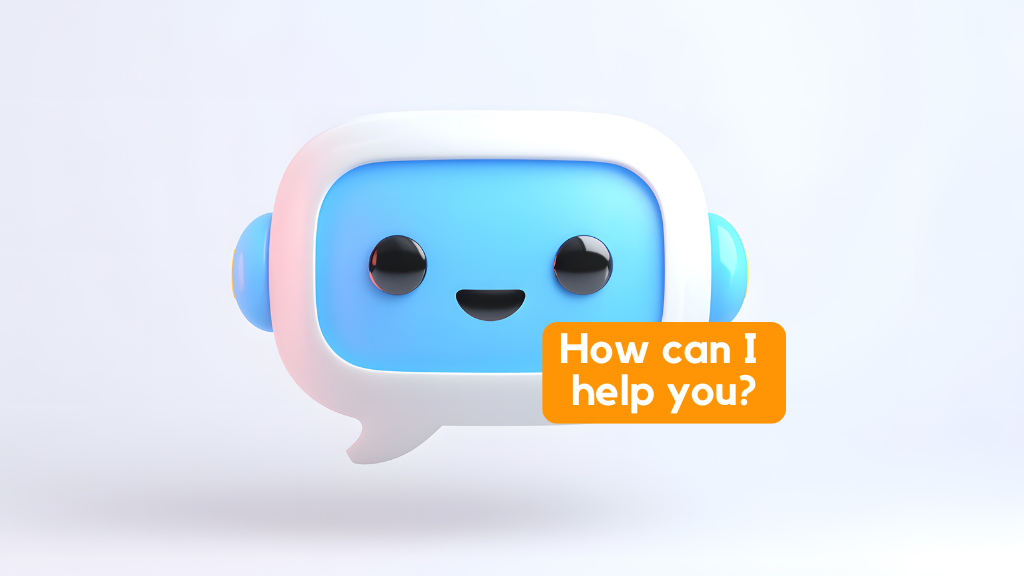Running a small business means wearing multiple hats, and customer service is often one of the heaviest. You’ve probably noticed your competitors implementing automated support systems and wondered whether you should follow suit. The technology landscape has shifted dramatically, and what started as simple chatbots has evolved into something far more sophisticated. Understanding the difference between traditional chatbots and modern AI agents could mean the difference between frustrating your customers and delighting them while simultaneously cutting your support costs.
The Evolution from Scripts to Intelligence
Traditional chatbots operate like digital choose-your-own-adventure books, following predetermined scripts and decision trees that developers manually programmed. When a customer asks about order status, the chatbot checks its flowchart and delivers a pre-written response. These systems excel at handling high volumes of repetitive, low-complexity queries, but they hit a wall the moment a customer asks something outside their programming.
AI agents represent a fundamental shift in how automated customer service works. These systems leverage advanced technologies including generative AI, large language models, and machine learning to go far beyond scripted conversations. They can reason through problems, learn from interactions, and take autonomous action across multiple business systems. Think of it this way: a chatbot is like having a receptionist who can only read from a script, while an AI agent is like having an experienced customer service representative who understands context, remembers previous conversations, and can actually solve problems.
The practical difference becomes clear in real customer interactions. When a customer messages about a damaged product, a chatbot might offer three predetermined options: track your order, request a refund, or speak to an agent. An AI agent, however, can identify the customer, pull up their order history, understand the specific issue, process a replacement order, generate a return label, and send confirmation emails—all without human intervention.
Understanding the Real Costs
For small businesses, AI agent costs range from free trials to $2,000 monthly for comprehensive solutions, with most businesses finding their sweet spot between $100 and $2,000 monthly. Traditional chatbots typically cost less upfront, often starting at $50 per month for basic functionality. However, the true cost calculation extends far beyond monthly subscriptions.
Hidden costs often equal or exceed platform subscription fees. Budget an additional 50 to 100 percent for integration expenses, staff training, ongoing maintenance, and infrastructure requirements. A chatbot might seem cheaper at $100 monthly, but if it only handles 20 percent of customer inquiries and frustrates the other 80 percent into calling your support line, you’re not saving money.
Companies implementing AI chatbots report 30 to 40 percent cost reductions in their customer service operations. A mid-sized e-commerce business reduced its customer service costs by $150,000 annually by implementing an AI chatbot to handle 70 percent of routine inquiries. These numbers reflect more than just reduced headcount; they represent faster resolution times, fewer repeat contacts, and improved customer satisfaction scores that translate directly to retained revenue.
Calculating Your Return on Investment
The formula for calculating AI customer service ROI involves agent time saved multiplied by hourly rate, plus improved customer retention value, minus AI platform costs, divided by AI platform costs, then multiplied by 100. Companies should factor in the average 1.2 hours daily savings per representative and 35 percent increase in customer satisfaction.
Most AI agent implementations reach break-even within 3 to 9 months. During months one through three, you’ll experience high setup costs and learning curve impacts. Months four through six bring apparent efficiency gains as AI agents handle routine tasks effectively. By months seven through twelve, you’ll see full ROI realization as AI agents operate at optimal efficiency.
Every 5 percent improvement in customer retention can lift profits by 25 to 95 percent. Additionally, personalized recommendations from AI systems can translate customer service moments into revenue opportunities, with a 10-point NPS increase correlating with a 3.2 percent rise in upsell sales. These aren’t just operational savings; they’re revenue multipliers that transform customer service from a cost center into a growth engine.
Making the Right Choice for Your Business
The decision between a chatbot and an AI agent depends on your specific business context and customer service complexity. If your primary need involves answering basic questions about business hours, return policies, or product specifications, a traditional chatbot might suffice. These systems work well for businesses with predictable customer inquiries and limited product complexity.
However, statistics show that 75 percent of customers expect AI agents to provide the same help quality as human agents, and 73 percent believe AI improves their service experience when implemented well. Modern customers don’t distinguish between automated and human support; they simply want their problems solved quickly and effectively.
When implemented properly, AI agents handle 80 percent of customer support inquiries autonomously, with companies reporting a 52 percent reduction in time to resolve complex cases. For small businesses competing against larger companies with extensive support teams, this level of automation represents a genuine competitive equalizer.
Implementation Strategies That Work
Starting your AI journey doesn’t require a complete overhaul of your customer service operations. Begin with a pilot project focusing on a single area where quick wins are possible, then gather feedback, test your ideas, and refine your approach before expanding to more customers. Many successful implementations begin with after-hours support, allowing the AI to handle inquiries when human agents aren’t available, then gradually expanding to handle daytime volume.
Companies transitioning to AI chatbots experienced 37 percent decreases in first response time and 52 percent decreases in resolution time. These improvements happen because AI agents don’t just respond faster; they resolve issues more completely on first contact, eliminating the back-and-forth that frustrates customers and consumes agent time.
The quality of your AI implementation depends heavily on the data you provide for training. If the data AI systems are trained on is biased or outdated, they will provide inaccurate results. This means investing time in organizing your knowledge base, documenting common issues and resolutions, and ensuring your AI has access to current product information and policies.
Beyond Simple Cost Savings
AI doesn’t just reduce the burden of repetitive tasks; it allows human agents to focus on complex, higher-stakes interactions requiring critical thinking. Organizations implementing AI in day-to-day operations can boost productivity by 40 percent. Your team members shift from answering the same password reset question fifty times daily to handling escalated issues that genuinely require human empathy and problem-solving skills.
AI-powered improvements lead to higher Net Promoter Scores, increased customer loyalty, and lower churn, directly impacting revenue. When customers receive instant, accurate responses at any hour, their perception of your business improves. They’re more likely to make repeat purchases, recommend your services, and forgive occasional missteps because their overall experience remains positive.
The Competitive Reality
The AI agent market is exploding with investment and adoption, with projections showing the global AI agents market reaching $7.6 billion in 2025, growing at approximately 45 percent compound annual growth rate through 2030. By one estimate, over 79 percent of enterprises will be using AI agents in some form by the end of 2025.
For small businesses, these statistics represent both opportunity and urgency. Your larger competitors are already implementing these technologies, using their resources to provide 24/7 support that small businesses traditionally couldn’t match. However, the democratization of AI technology means you can now access enterprise-level capabilities at small business prices.
By 2025, 80 percent of companies will have adopted or plan to adopt AI-powered chatbots to support their customer service operations. The question isn’t whether to adopt AI-powered customer service, but how quickly you can implement it effectively to maintain competitive parity.
Making It Work on a Small Business Budget
For small businesses, pricing typically ranges from $50 to $500 monthly for effective AI agent solutions. Starting with a basic implementation focused on your highest-volume, most repetitive inquiries can deliver immediate ROI while you learn the technology. Many platforms offer free tiers with limited interactions, allowing you to test effectiveness before committing to paid plans.
Consider beginning with hybrid approaches where AI handles initial triage and information gathering before seamlessly transitioning complex issues to human agents. This strategy maximizes the value of both AI efficiency and human expertise while keeping costs manageable. As your comfort with the technology grows and you see tangible returns, you can expand AI responsibilities incrementally.
The transformation from traditional chatbots to AI agents represents more than a technology upgrade; it’s a fundamental shift in how small businesses can compete in customer service. Modern AI support isn’t about basic bots handing out FAQ answers—it’s about autonomous agents that genuinely help customers and get things done. By choosing the right solution for your business needs and implementing it strategically, you can deliver customer service that rivals or exceeds what customers experience with much larger companies, all while reducing costs and freeing your team to focus on growth-driving activities.
Ready to explore how AI-powered customer service could transform your small business? The key is finding the right balance between automation and human touch that aligns with your unique business model and customer expectations. At Simple Solutions FS, we specialize in helping small businesses navigate these technology decisions with a human-centered approach, ensuring you implement solutions that genuinely serve your customers while delivering measurable ROI. Contact us to discuss your specific situation and discover which path—enhanced chatbot or full AI agent—makes the most sense for your business’s next stage of growth.




